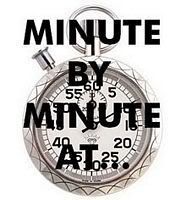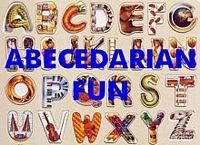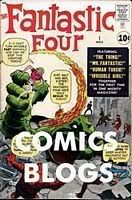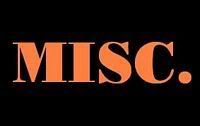COMICS: Daisy Kutter: The Last Train
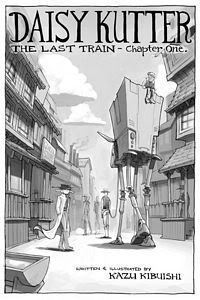
On Mike's recommendation, I picked up the trade paperback collection of the four-issue series Daisy Kutter: The Last Train, by Kazu Kibuishi. It's a Western/sci-fi hybrid, set in an Old West-type frontier town in which robots and gunslingers walk side by side. Daisy Kutter is a legendary bandit who has reluctantly gone straight; she now owns the general store in the same town where her former partner in crime (and lover), Tom, has become sheriff.
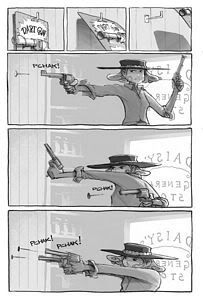
It's wonderfully illustrated in a slightly cartoonish style that's highly pleasing, with beautifully painted grey tones. Take this full-page panel:
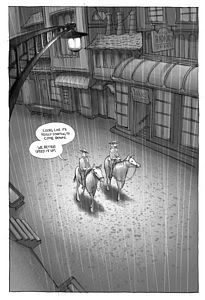
I love the pattern the raindrops make on the ground, the light overhead, the shadows on the buildings. It's a lovely picture.
The art sometimes looks roughly pencilled in rather than fully inked; to my mind, it was somewhat reminiscent of Bill Plympton's early animation.
As an artist, Kibuishi is a gifted storyteller. The Last Train is most alive when the art does all the heavy lifting. As a writer, though.... I didn't care for most of the dialogue. It's tremendously clunky, and poorly suits the visual style. Through the art, the character of Daisy comes across as brash, strong, smart, whimsical, reckless... she leaps off the page. But the dialogue makes her seem like nothing more than a cranky, ill-spoken teen.
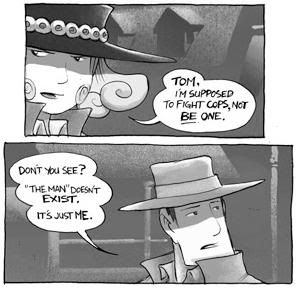
Ooh, she's fightin' The Man, yo!
The action scenes are also hindered by the poor writing. Take the climax of the first issue, a poker showdown between Daisy and the man who wants to hire her to return to a life of crime. Daisy is allegedly an excellent poker player, but the scene is written by someone who's only seen poker on TV, and didn't quite understand the dynamics of the game. There's no excitement to the game, and there's no way anyone would mistake Daisy for a good player. She's pouty, careless, and transparent, and when her opponent tells her, after she loses to him, "You played a very good hand," I had to laugh.
The man, J.C. Winters, hires Daisy to rob his own train; his intent is to demonstrate the superiority of his security system. There's some nice art --
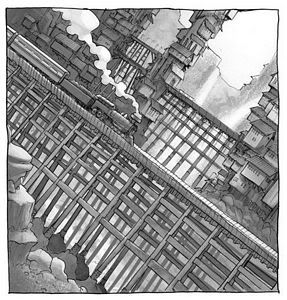
-- I love that panel -- and some well-drawn action during the robbery, but the overall impression we get of Daisy is not one of a master criminal executing an ingenious heist, but of the most amateurish sucker walking into the most blatant of traps. She's so blind to obvious clues that all is not as it seems, and to obvious threats waiting in store, that it's impossible to believe she wasn't killed a hundred times before this. And the security system is a tremendously lame menace; it's a robot that doesn't have the sense to shoot when it's got the drop on someone, or to take cover when someone shoots back.
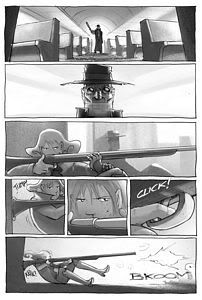
I'm interested in seeing what Kibuishi does next -- I would even consider buying the next Daisy Kutter story, should there be one -- but The Last Train as a whole doesn't quite work for me. It shows great promise, and it's often gorgeous, but it's simply not a success.









